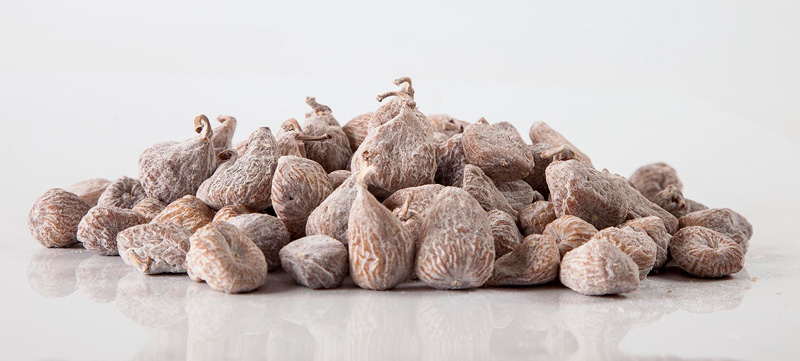
At Higos El Pajarero we want to share with you one of the secrets of a healthy diet that allows you to be in optimal shape: the consumption of dried figs. These little delicacies are full of properties, vitamins, minerals and other substances with which you will get a perfect health, so get ready to know them a little more.
Properties
The first thing you need to know is the amount of properties that dried figs El Pajarero have. For starters, they are rich in some of the most important minerals for your body. Without going any further, these fruits, when dried, contain large amounts of iron, although this is not their only advantage. On the contrary, calcium and magnesium are also very abundant in figs presented in this way, so they are most suitable to help alleviate many deficiencies in the body.
However, this food also contains a good amount of vitamins that you should not lose sight of. For example, various types of vitamin B are found in high concentrations in this dried fruit, which is ideal for your body health.
Healthy eating
Taking into account these characteristics, it is easy to guess that dried figs are ideal to be able to eliminate certain pathologies. For example, cases of anemia have in this fruit a powerful all-natural medicine due to the presence of iron and vitamin B.
Digestive disorders, especially those with symptoms such as constipation and even heartburn, can also find a solution in the consumption of figs El Pajarero. The reason is none other than the abundant amount of fiber that a regular consumption of this fruit provides, a completely necessary element to enjoy life in a healthy way.

Magnesium is an essential micromineral that plays a crucial part in the basic fundamental structural function in human beings. Since it’s present in bones, its balance becomes basic for an adequate function of our organism.
Furthermore, it also regulates our system, we can find magnesium’s implication in many reactions of energy acquisition inside our cells. This micromineral also contributes to the normal functioning of muscle tissue.
In which part of our bodies is magnesium present?
Magnesium is present in our human bodies, basically in muscle and bone tissue. At the same time, although in small quantities, it is present in our bloodstream and red blood cells. That's why it’s important to assure proper levels of magnesium in our diets.
What food should we consume regularly to get adequate levels of magnesium?
To obtain a good level of magnesium, we can find this micromineral in food such as dried figs, avocados, nuts such as almonds, cashews or pistachios, some seeds such as pumpkin, flax or sesame, unsweetened cocoa powder, white corn, snails, oily fish, herbs and spices, fruits such as grapefruit or lemon, dark bitter chocolate and berries, to cite the most obvious examples.
It should be noted that its multifunctionality means that it comes to play a more or less prominent role in more than 300 reactions that occur in our body, although we may not be aware of them. Just to name a few examples, you will find magnesium in:
- Muscle contraction
- Protein synthesis
- Maintenance of healthy teeth, heart and bones
- Supporting protein formation
- Oxygen transport
- Energy metabolism
- Immune functions
- The intervention of the nervous contraction and in the nervous transmission.
It is therefore of vital importance to ingest the foods mentioned previously. Although in most cases, those who are most concerned about maintaining the correct levels of magnesium are athletes, especially runners,we should all be aware of the consumption of food with magnesium.
What are the consequences of magnesium deficiency?
A large enough magnesium deficiency can cause structural damage to muscle cells, so we can get tired earlier and suffer more fatigue, we can encounter metabolic problems when normal energy is being produced or even, without this micromineral, we could lose the electrolyte balance in our body.
Other effects of a lack of magnesium in our body can be irritability, convulsions, decreased appetite or weakened muscles.
On the other hand, it is important to know that the use of magnesium is particularly useful for people who do sports, who have a high rate of sweating or who train under intense hot weather conditions. Our body eliminates excess magnesium by itself.
Consuming natural foods such as dried figs (you can find them almost all year round), some nuts, some citrus fruits, avocados (and others mentioned above) can help you get the magnesium levels your body needs. Consult your doctor to know your needs and maintain them properly.





